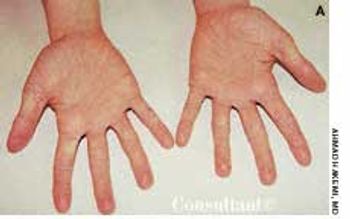
ABSTRACT: Once you have excluded a cardiac origin of chest pain, focus the evaluation on esophageal, psychiatric, musculoskeletal, and pulmonary causes. Gastroesophageal reflux disease (GERD) and esophageal motility disorders are the most common causes of unexplained chest pain (UCP). If you suspect an esophageal disorder, empiric antisecretory therapy is the most cost-effective initial approach. If the patient remains symptomatic, order a 24-hour esophageal pH study with symptom analysis while the patient receives maximal acid suppression. Once GERD is excluded, the patient may be treated for visceral hyperalgesia with low-dose tricyclic antidepressants or standard doses of selective serotonin reuptake inhibitors. Panic disorder-the most common psychiatric disorder in patients with UCP-is often associated with atypical symptoms, such as palpitations and paresthesias, and other psychiatric disorders. If you suspect panic disorder, one approach is to give the patient a short-term, nonrefillable prescription for a benzodiazepine and refer him or her for psychiatric evaluation.
































































































































